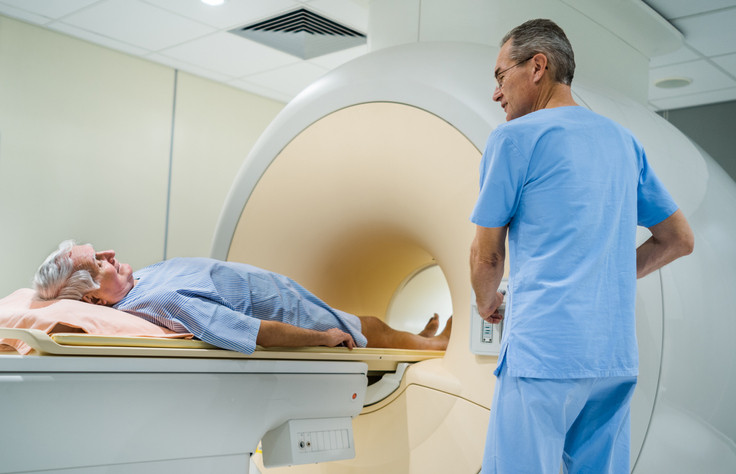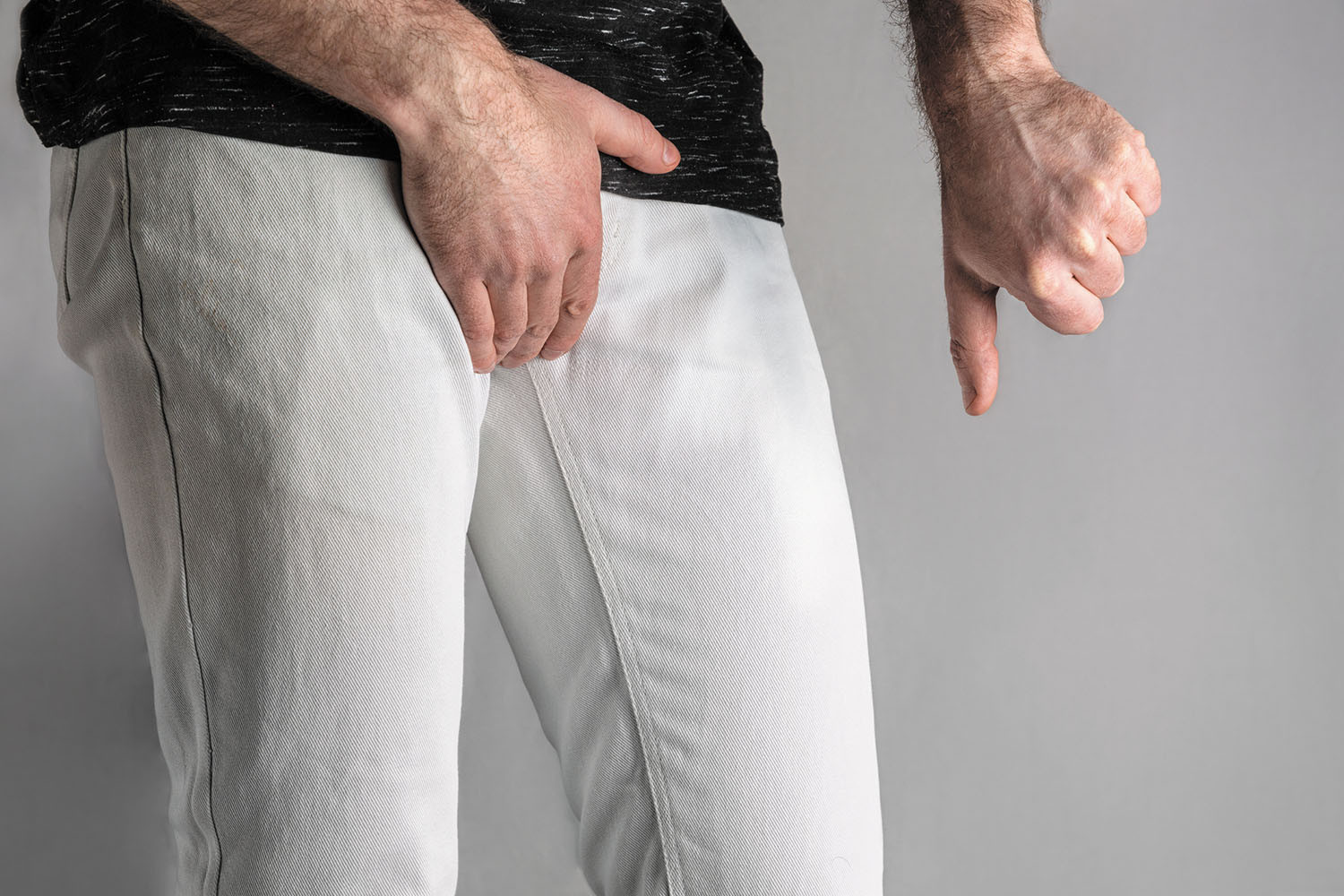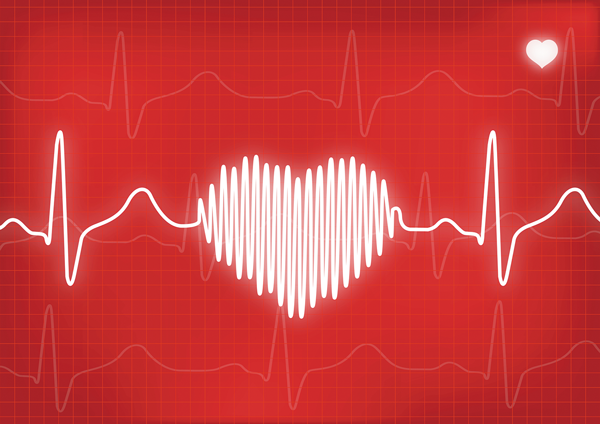
New thinking about plaque in arteries that feed the brain

Want to prevent shifting teeth? Maybe you need retainers

What you need to know about the new dietary guidelines

Food that’s healthier for people and planet can be cheaper, too

New evidence that polyphenol-rich foods help the heart

8 simple ways to reduce ultra-processed foods in your diet

How to curb your stress eating

How to spot Parkinson’s disease symptoms

Heart failure symptoms in women: How they’re different

GERD diet: Foods to avoid to reduce acid reflux
Men's Health Archive
Articles
Can gout be prevented?
Gout, a debilitating form of arthritis, is on the rise compared with rates in prior decades. Obesity is probably a significant factor in this increase. Now, a new study suggests that three-quarters of gout cases in men might be completely avoidable by following certain protective health habits.
Radiation after prostate cancer surgery may not be necessary
In the journals
Many men with prostate cancer who have a radical prostatectomy (prostate removal) receive radiation therapy afterward to wipe out any residual cancer cells. Alternatively, men can choose to delay radiotherapy and be monitored for evidence of prostate cancer activity, such as a rising blood level of prostate-specific antigen (PSA). If PSA testing or an imaging test like an MRI shows cancer, these men can then consider radiation therapy.
According to the findings of an analysis published online Sept. 28, 2020, by The Lancet, there is no clear benefit of immediate radiation over monitoring with later radiation therapy as necessary. Since some men will never need radiotherapy, this means that by forgoing immediate treatment, they can avoid potential side effects like incontinence and bowel problems.
Predicting low-risk prostate cancer
New calculators can estimate the chance your cancer might — or might not — become more aggressive.
Active surveillance is a popular option for men with low-risk prostate cancer, defined as a tumor that is confined to the prostate gland and unlikely to grow or spread. It involves monitoring prostate-specific antigen (PSA) levels in the blood for changes and having regular digital rectal exams to look for abnormal areas on your prostate.
During active surveillance, you have a PSA test and a digital rectal exam every six months and prostate biopsies approximately every other year. If your PSA level rises, your doctor will likely recommend a prostate MRI or an immediate prostate biopsy to see if the cancer has become more aggressive. If so, you and your doctor can decide whether to continue with active surveillance and have another biopsy six months or a year later, or move ahead to treatment, such as radiation, hormonal therapy, or surgery.
Unlocking the mystery of chronic pelvic pain syndrome
The condition is an all-too-real problem for men, and one of the more difficult to treat.
After age 50, men often have periods of discomfort "down there." It could be a cramping, aching, or throbbing pain in and around your pelvis and genitals. You also may have issues in the bedroom and bathroom. While the problems are real, the cause is often difficult to pinpoint.
It's called chronic pelvic pain syndrome (CPPS) — also known as chronic prostatitis — and it's one of the most puzzling and difficult-to-manage conditions for older men.
"Awe" walks inspire more joy, less distress
News briefs
Need a little inspiration? The next time you take a walk outside, note things that spark a sense of wonder or awe. That's what some older adults tried for a small study published online Sept. 21, 2020, by the journal Emotion. Of the 50 people who took part, half went for weekly 15-minute walks outdoors (alone) for eight weeks, and snapped "selfies" along the way. The other half took the same walks and selfies, but visited a new place each time. They were asked, especially, to note things that inspired a sense of awe — like tree colors or leaves underfoot softened by rain. Participants also answered surveys about the emotions they felt on walk and non-walk days. After analyzing responses and photos, scientists found that people who people took the "awe walks" reported less distress and increasing awe, joy, compassion, and gratitude, compared with people on the regular walks. Awe walkers also smiled more and made themselves smaller in their photos, focusing more on landscapes — a sign of a greater appreciation of the world around them. Try it yourself: On your next walk, imagine you're seeing things for the first time. What will inspire you? Perhaps a path lined with trees, the shore of a lake, or an up-close look at skyscrapers. Jot down your observations, and see if you feel a sense of wonder and joy. Happy trails!
Image: © Igor Alecsander/Getty Images
Hormone therapy and radiation may help with certain prostate cancer
In the journals
Men with intermediate-risk prostate cancer may benefit from undergoing androgen-deprivation therapy (ADT) depending on how far the cancer has progressed, says a study published online Sept. 9, 2020, by JAMA Network Open. The results could help men better weigh risk versus reward when choosing their prostate cancer treatment options.
The study looked at men with intermediate-risk prostate cancer. This is the mid-range of prostate cancer in terms of aggressiveness between low-risk (which often doesn't need treatment) and high-risk cancer. There are two categories of intermediate-risk cancer: favorable intermediate-risk (FIR) and the more advanced unfavorable intermediate-risk (UIR).
7 strategies for partnering up with ED
Men who have erectile dysfunction are often embarrassed and are reluctant to talk about their condition. But significant others can help by offering much-needed support in a number of ways.
The danger of “silent” heart attacks
About half of all heart attacks are mistaken for less serious problems and can increase your risk of dying from coronary artery disease.
Image: goir/Getty Images
You can have a heart attack and not even know it. A silent heart attack, known as a silent myocardial infarction (SMI), account for 45% of heart attacks and strike men more than women.
They are described as "silent" because when they occur, their symptoms lack the intensity of a classic heart attack, such as extreme chest pain and pressure; stabbing pain in the arm, neck, or jaw; sudden shortness of breath; sweating, and dizziness.
Plant protein may help you live longer
In the journals
Men need sufficient protein to help maintain muscle mass and strength as they age. A study published online July 13, 2020, by JAMA Internal Medicine suggests the source of that protein also may dictate how long they live. Scientists examined the diets of more than 400,000 people ages 50 and older, who consumed protein from plant sources, red meat, and eggs. They were then followed for more than 16 years. Those who ate mostly plant protein instead of red meat or egg protein had a 13% to 24% lower risk of death from any cause.
How much plant protein is enough? The researchers found that men in particular had a 12% lower risk of death for every 10 grams of plant protein per 1,000 calories they consumed. The experts suggested that the benefits could increase if men ate even more plant protein. Guidelines recommend that healthy older adults need 1.2 grams of daily protein for every kilogram of body weight. A 175-pound man would need about 95 grams. Good sources of plant protein include almonds (about 17 grams per 1/2 cup), tofu (20 grams per cup), lentils (about 18 grams per cup), and black beans and chickpeas (15 grams per cup).
Get back in sexual sync
Here's how to regain romantic rhythm with your partner when sexual drive and interest get out of whack.
It's common for longtime partners to fall into romantic ruts. "You don't stay newlyweds for life, and there are times when romance and sex get routine and less exciting," says Dr. Sharon Bober, director of the Sexual Health Program at Harvard-affiliated Dana-Farber Cancer Institute.
What can you do when you and your partner are sexually out of sync? As with most things in life, if you want change, then you must be willing to change.

New thinking about plaque in arteries that feed the brain

Want to prevent shifting teeth? Maybe you need retainers

What you need to know about the new dietary guidelines

Food that’s healthier for people and planet can be cheaper, too

New evidence that polyphenol-rich foods help the heart

8 simple ways to reduce ultra-processed foods in your diet

How to curb your stress eating

How to spot Parkinson’s disease symptoms

Heart failure symptoms in women: How they’re different

GERD diet: Foods to avoid to reduce acid reflux
Free Healthbeat Signup
Get the latest in health news delivered to your inbox!
Sign Up











